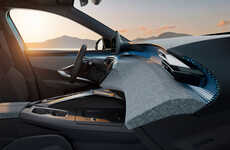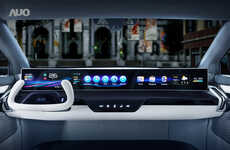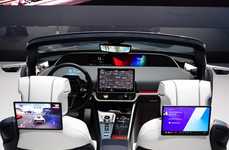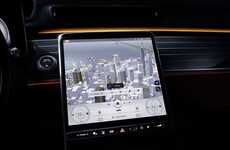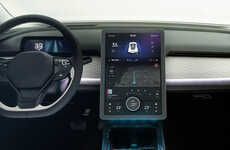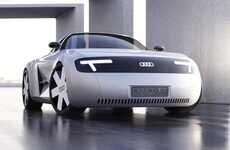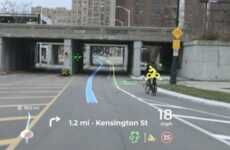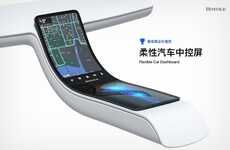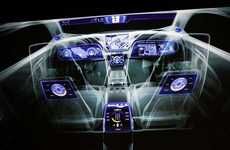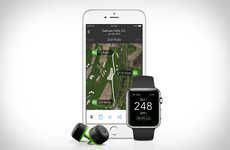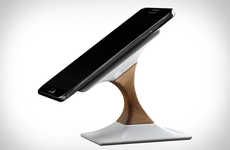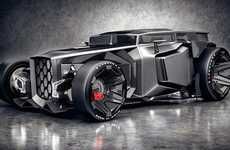
The Third-Generation Audi TT Cockpit Will Be a Virtual Cockpit
Rahul Kalvapalle — August 14, 2014 — Autos
References: audi-mediaservices & gizmag
The new Audi TT cockpit is a virtual cockpit that takes the recent popularity of sleek in-car infotainment displays to the next level. This virtual cockpit consists of a 12.3-inch screen located behind the steering wheel, where regular instrumentation is normally located. The display not only shows information about speed and wheel revolutions, but can also share navigation and media information and act as a control center for car settings.
This virtual Audi TT cockpit gives the driver control over the way the information is displayed. In classic mode, the display is dominated by a traditional speedometer and revolution counter, while navigation and entertainment info are gathered in the middle to minimize distractions.
In infotainment mode, speed and revolutions are reduced to small readouts while navigation and entertainment info are displayed more prominently.
This virtual Audi TT cockpit gives the driver control over the way the information is displayed. In classic mode, the display is dominated by a traditional speedometer and revolution counter, while navigation and entertainment info are gathered in the middle to minimize distractions.
In infotainment mode, speed and revolutions are reduced to small readouts while navigation and entertainment info are displayed more prominently.
Trend Themes
1. Virtual Cockpits - The popularity of sleek in-car infotainment displays has paved the way for virtual cockpits that enhance the driving experience.
2. Customizable Information Displays - Virtual car displays offer drivers the ability to customize how information is presented, allowing for a more personalized and intuitive driving experience.
3. Integration of Navigation and Infotainment - The integration of navigation and infotainment systems in virtual car displays streamlines the user experience, minimizing distractions and enhancing convenience.
Industry Implications
1. Automotive - The automotive industry can capitalize on virtual car displays to create innovative and immersive driving experiences.
2. Electronics - The electronics industry can benefit from the development and production of advanced virtual display technologies for automotive applications.
3. Software Development - Software developers can seize opportunities in developing intuitive user interfaces and customizable display settings for virtual car cockpits.
4.2
Score
Popularity
Activity
Freshness


